“I have always wanted a place like this, where I can sit and discuss issues with my peers without being judged,’’ says Zulaihat Yusuf, 30, after engaging in a two-hour conversation with 29 other youths in Yola, Adamawa State. The discussion covered many youth concerns, from sexual and reproductive health to drug abuse. ‘’It is good for our mental health. I cannot wait for the next meet-up’’, she added.
Born in Yola in Nigeria’s northeastern region, Yusuf had always wondered why discussing issues concerning sex especially by youth was considered a taboo. She had seen young girls fall prey to unwanted pregnancies, unsafe abortions, and sexually transmitted diseases because they couldn’t discuss issues openly or seek medical care from health facilities, without judgement. ‘’Even the high cases of drug abuse we have now is because young people don’t have the right counselling. Nobody brings them close or talks to them. Nobody listens to them,’’ she added in a voice laden with emotion.
Yusuf’s idea came to reality in early March 2021, when she heard of a youth-friendly centre in Yola. The centre is run by Today for Tomorrow (TfT) Foundation, a youth-led and youth-serving non-profit organisation. Founded in October 2020, the centre bridges the gap in youth development by providing safe spaces for accessing sexual and reproductive health education, gender-based violence and personal development information. ‘’We have over 40 youths who attend our youth friendly sessions,’’ says Adek Bassey, the organisation’s CEO. ‘’All our attendees are between the ages of 16 and 35 and we meet periodically,’’ she added. At the end of every meeting, future dates are decided by attendees with WhatsApp reminders sent to keep the discussions going.
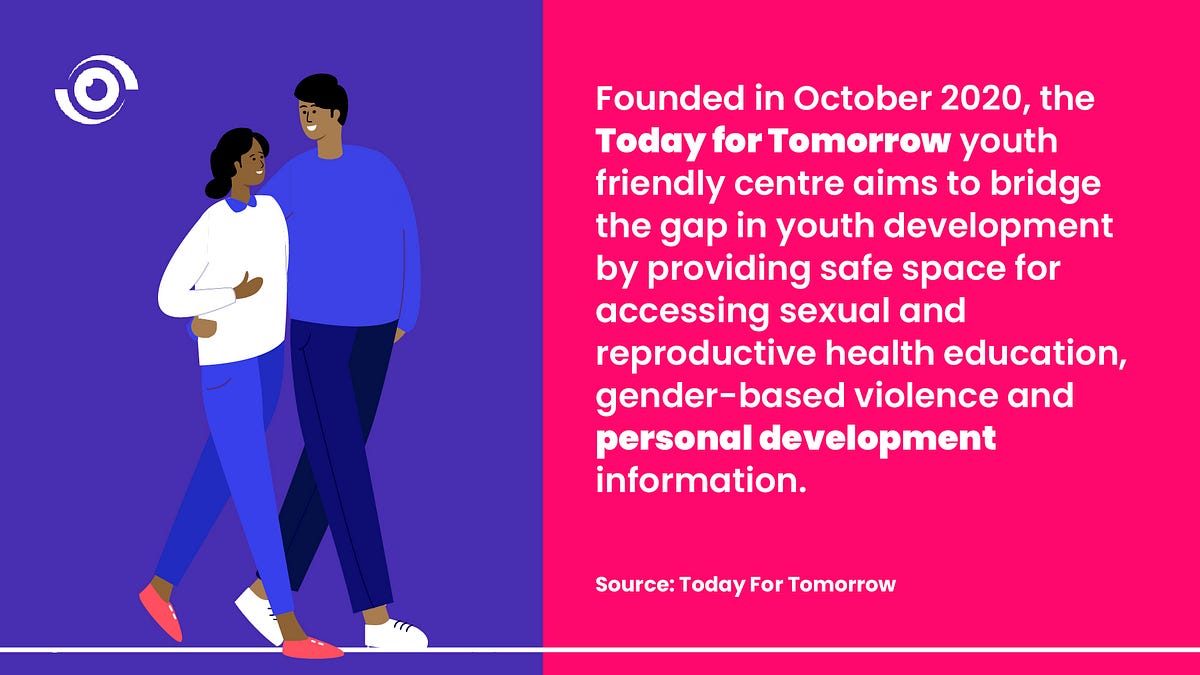
A source of right information
Ejum Omiemo, 25, said she believed several myths about using contraceptives. Although she is sexually active, she viewed contraceptive products with skepticism. ‘’The myth that using contraceptives before marriage will prevent one from getting pregnant in the future is deep-rooted in society’’ she said, adding, “This is what I and those in my circle believed.’’ Like Yusuf, Omiemo was introduced to the centre by a friend in January 2021. At her first meeting, she sought to clarify this myth. “When I brought up the question, it was laid out for discussion and I was enlightened. I no longer hold that myth’’. Omiemo said she and a friend she introduced to the centre now use contraceptives without fear. ‘’We’re just making sure we are not having children until we are ready to,’’ she added.
For Muhammad Abbas, a 30-year-old tailor, gender-based violence discussions have transformed his view of the topic all together. ‘’Before, I thought gender-based violence was only about rape. Now I know even unsolicited physical contact and verbal remarks are gender-based violence,’’ Abbas, who started attending meetings in November 2020, said.
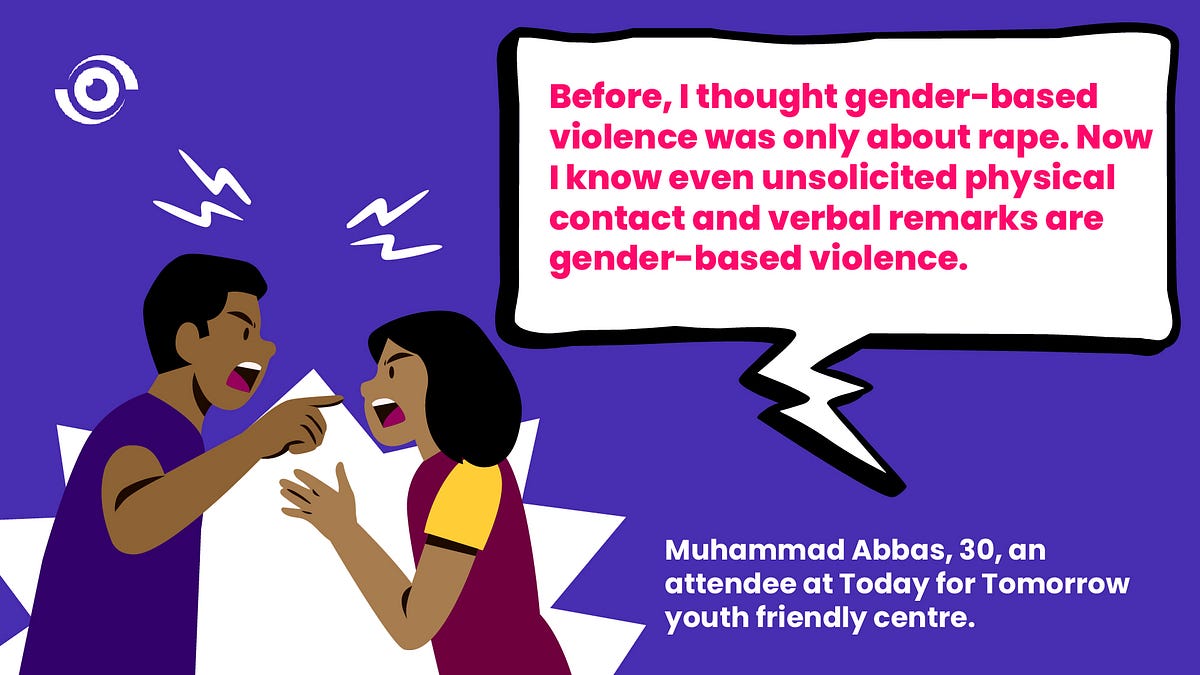
A confidence booster
‘’Buying condoms from the pharmacy was always hard for me,’’ says Omiemo. “I was always scared of how I was perceived. I have had unprotected sex several times because of that’’. For several youth, fear of judgement is one of the barriers preventing them from accessing contraceptives. While they cannot control judgement from others, the youth could learn how to respond. According to Omiemo, the young people take turns to share experiences during meetings and discuss ideas on how to develop confidence in such situations. ‘’It is not a crime to buy condoms’’ she said, adding, “Since I am only protecting myself, why should anyone judge me? That is one of the things we tell ourselves. Now I walk into stores to get condoms and I don’t even imagine that anyone is looking at me.’’
Fear of judgement not only prevents youth from accessing contraceptives, but also from seeking care when infected with sexually transmitted diseases (STDs). According to Yusuf, a young close relative lived with an illness later diagnosed as an STD for months because she was scared to seek care at a health facility. ‘’She was sick and hid it from everyone until it was no longer possible. Thank God, we didn’t lose her,’’ she said. With the knowledge gained from the meetings, Yusuf said she tells young women like her to not just open up when they have problems, but to also use contraception to protect themselves from unwanted pregnancies and STDs. She adds that discussions she has participated in have given her confidence to discuss issues that she previously found difficult.
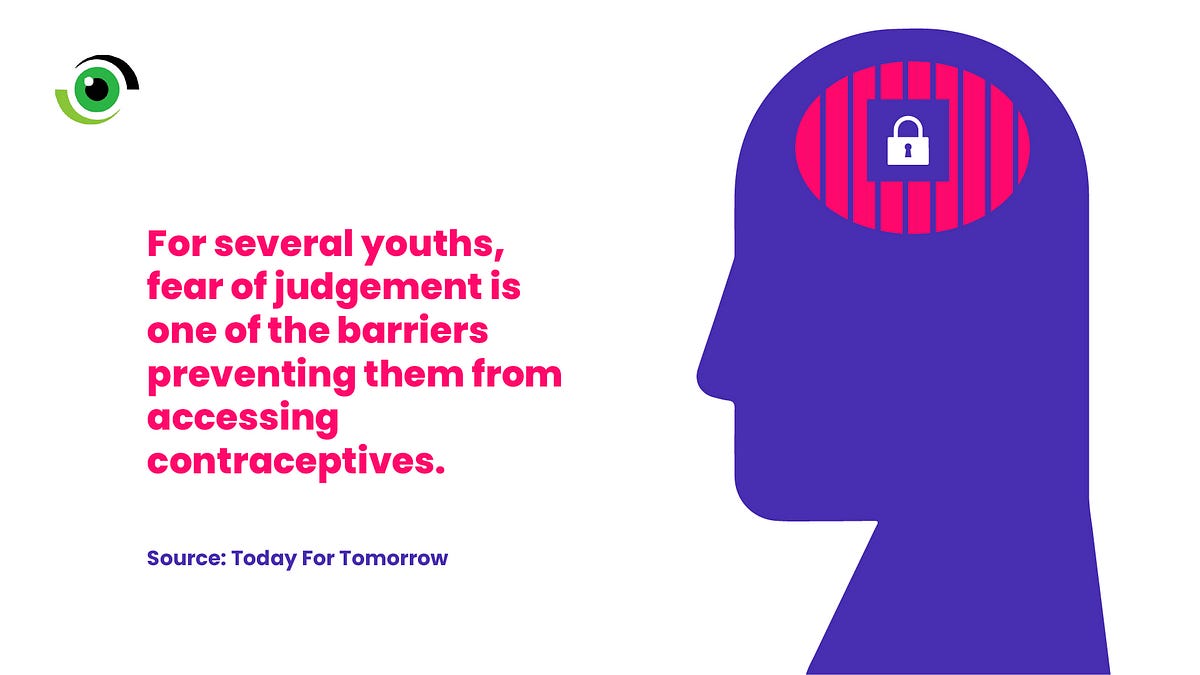
Taking the conversation to community youth
The centre has fostered change by taking discussions to youth and allowing their voices be heard. It leveraged youth love of sports to create awareness around gender-based violence and drug abuse. They organised a football match in Yola South, using half-time to create awareness about GBV, which allowed for dialogue between members of the community and the centre. The full-time talk was focused on drug abuse, its effects and how to seek help. The idea generated interest about the topics according to Abbas, causing community youths to join the centre.
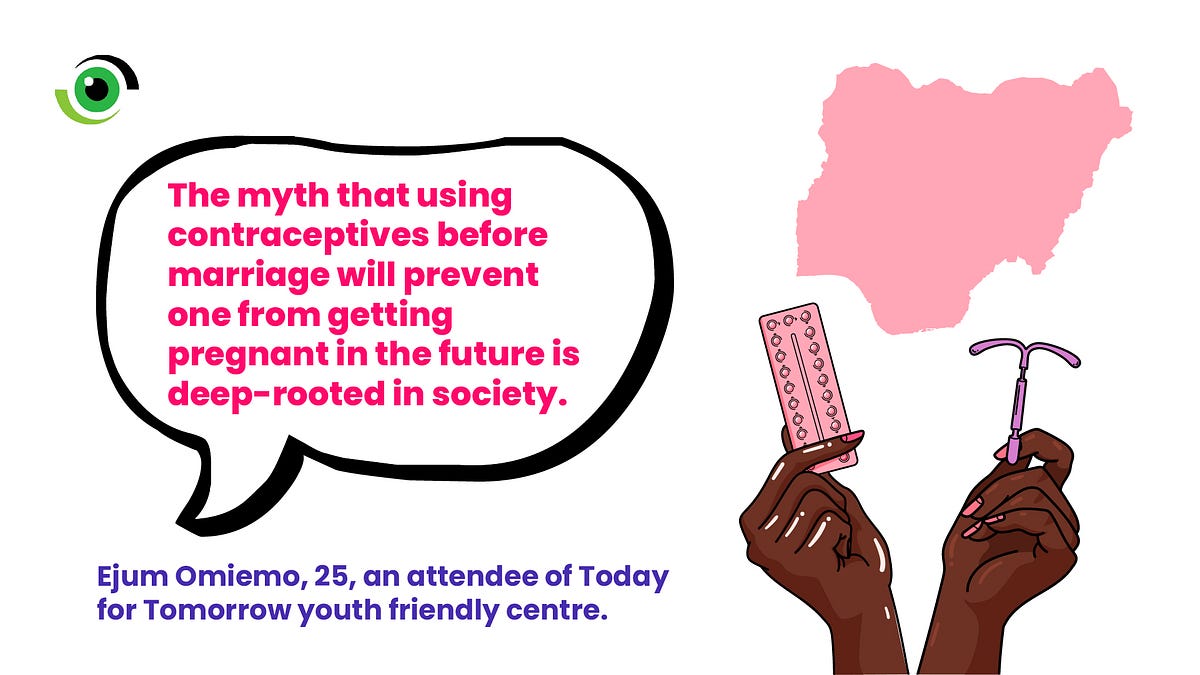
Looking ahead to spread safe spaces for youth SRH conversations
With the deep interest they have experienced from youth, TfT believes youth in its centre will carry knowledge into communities and bring positive changes in the sexual and reproductive lives of young people and reduce the burden of drug abuse. According to Bassey, the goal is to ensure that young people practice safe sex and have the confidence to address challenges and seek help without fear. She adds that TfT plans to establish more centres across Adamawa State. While doing this however, TfT should find a way to gain support from community leaders. This will dispel suspicions about the motives of the organisation within communities. In a conservative state like Adamawa, meetings about sexual and reproductive health could be perceived negatively and gaining the support of community leaders could forestall a possible backlash. A limitation TfT could seek to address in addition is the lack of medical expertise in their forums. Sexual and reproductive health and drug addiction are areas that sometimes require expert knowledge of a trained health care professional to avoid passing information that could end up causing harm. TfT should make efforts to have trained health care professionals or health facilities to attend their meetings and provide information from a professional angle during discussions.
For now, young people like Yusuf, Omiemo and Abbas can discuss with peers about sexual and reproductive health and carry knowledge to other young people in their communities.


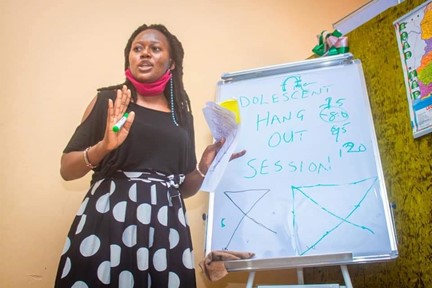
Amazing work you’re doing.